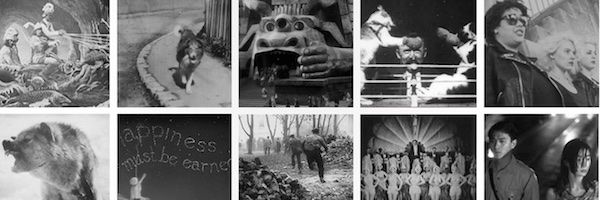We've reached maximum saturation when it comes to discussing "the greatest films of all time." Of course stuff like Citizen Kane, Casablanca and The Godfather belongs on lists espousing the very best of cinema - they're masterpieces. But a lot of times these lists (and texts in general) feel very, very similar. Surely there are movies that are off the beaten path a bit that still had an impact on the way we consume films, right?
When Fandor created their Alternate Guide to the History of Cinema, they went off the beaten path while still celebrating films that made an impact. It's not willfully obscure though, not with additions like The Cabinet of Dr. Caligari, but it manages to piece together a solid look at a timeline of work that is sort of undervauled which it comes to the discussion of the big picture. Hit the jump for an exclusive look at Fandor's An Alternate Guide to the History of Cinema.
About Fandor:
Fandor’s mission is to create a community of film lovers and makers connected by meaningful and entertaining cinematic experiences. Fandor is the home of thousands of handpicked, award winning films from around the world, of all lengths and genres. By investing in strategic partnerships with festivals (F|FA) and individual filmmakers (FIX) Fandor is generating greater opportunities for filmmakers, while their member-based service reaches audiences through TV set-top, desktop, and mobile devices, as well as through Keyframe, Fandor’s digital film art and culture magazine. Fandor supports great cinema by investing half of all membership fees back to the films watched.

